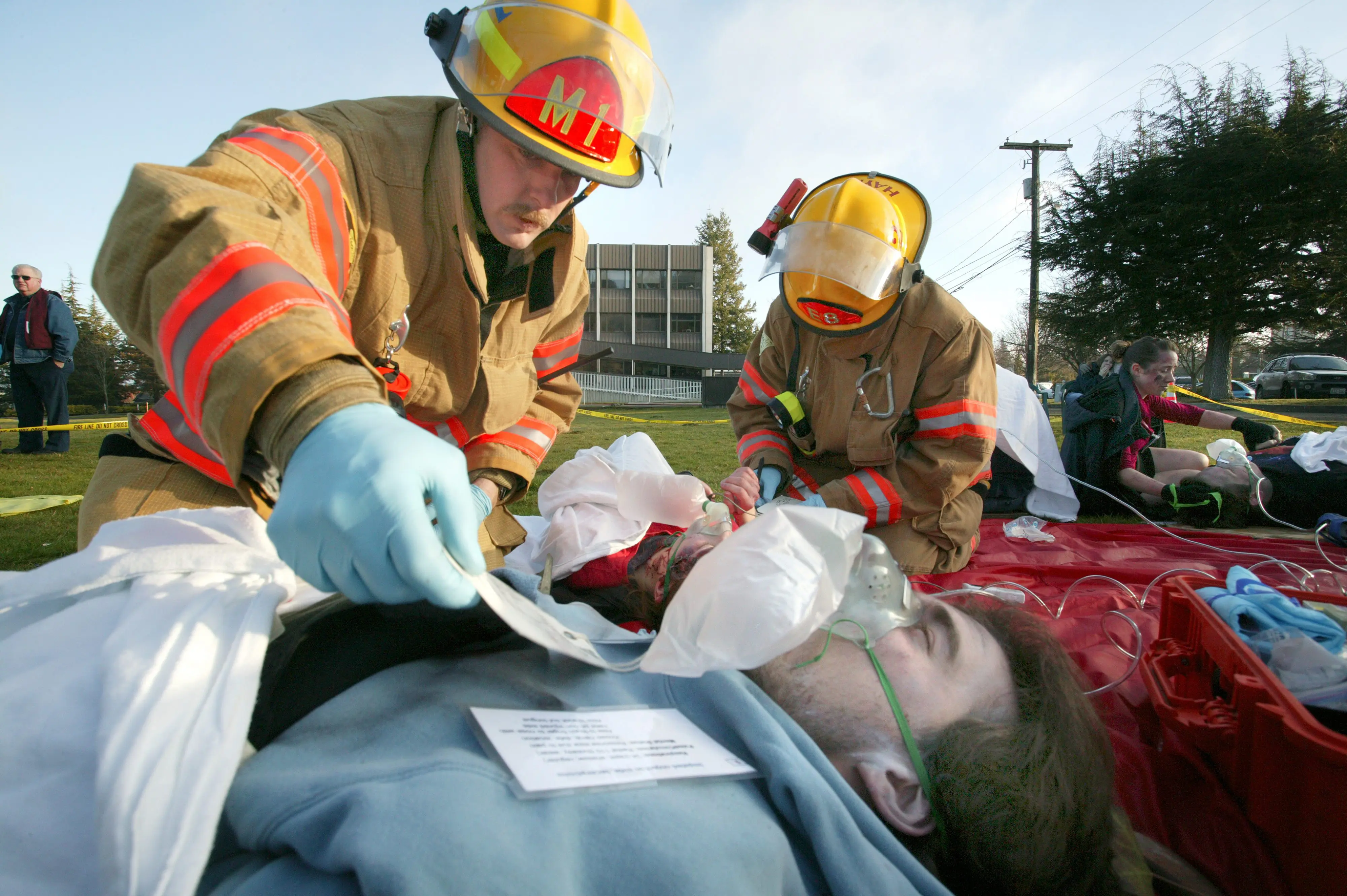Suppose you see your neighbor carrying his trash to the curb. He looks
sweaty and pale and falls to one knee as he clutches his chest. What would
you do? Call 911, and go to his side if you can.
The 911 dispatchers will ask you quick, simple questions and send
Firefighter/Emergency Medical Technicians (EMTs) and Firefighter /
Paramedics to your location immediately. These personnel have extensive
training and experience and the right equipment to help those who will
experience life-threatening, time-critical emergencies in our community
every year.
But what if you see someone who appears to be homeless and possibly has
mental health or substance abuse issues, and you are concerned about their
welfare but they do not appear to be in immediate danger? Is this an
emergency? What can you do to help him? Who can you or he call to get some
help?
The communities of Bellingham and Whatcom County support social and health
resources for many kinds of crises. Finding these services in a time of need
may be difficult, and people may reach out for a trusted, responsive
resource regardless of their kind of distress: they call 911.
Many 911 callers do not require time-critical medical interventions, but
their needs are real nevertheless. Homelessness, chronic behavioral health
conditions, failing mobility and other social welfare crises challenge the
scope and capacity of the emergency medical system. Historically, first
responders have had few remedies to ameliorate these situations other than a
trip to the hospital Emergency Department.
Nationally and internationally, communities increasingly recognize that
individuals with chronically unmet social and medical needs consume a
disproportionate share of social safety net services and funds. In response
to this, Bellingham Fire Department has begun a pilot project designed to
help frequent 911 callers and others using emergency services for complex
social conditions connect with existing services in the community. We call
this our Community Paramedic project.
The Emergency Medical Services (EMS) 911 system is often the first point of
contact for these individuals as their crises emerge, or when they fall into
the gap between service providers. Some people come to rely on emergency
services as their primary care. In many of these cases, Fire/EMS personnel
can make a difference by recognizing the unmet need and referring the
individual into – or back into – service networks offering targeted help.
The Bellingham Fire Department Community Paramedic will work to connect high
system utilizers to appropriate services and provide on-site evaluation as
needed. Over the next eight months we will evaluate the effectiveness of
this position to:
- Improve health and wellness outcomes for people in our
community. - Reduce dependence on 911 resources by frequent callers.
- Reduce health system expenditures.
- Produce revenue for services delivered.
The Community Paramedic will work closely with Bellingham Police
Department's Neighborhood Policing program to enhance public safety by
redirecting individuals who “fall through the cracks.”
The Community Paramedic project is also partnering with Opportunity
Council, Northwest Regional Council, Whatcom Alliance for Health Advancement
and other providers in Whatcom County to improve outcomes for vulnerable
individuals. Working together, we can make a difference.
Bellingham Fire Department will be conducting this pilot project with
existing resources and experienced Fire/EMS personnel. We wish to thank
Mayor Kelli Linville and the City Council for their support of this
endeavor.
Sean Farnand is an EMS Captain with Bellingham Fire Department. He
has been with the Department for 17 years.

